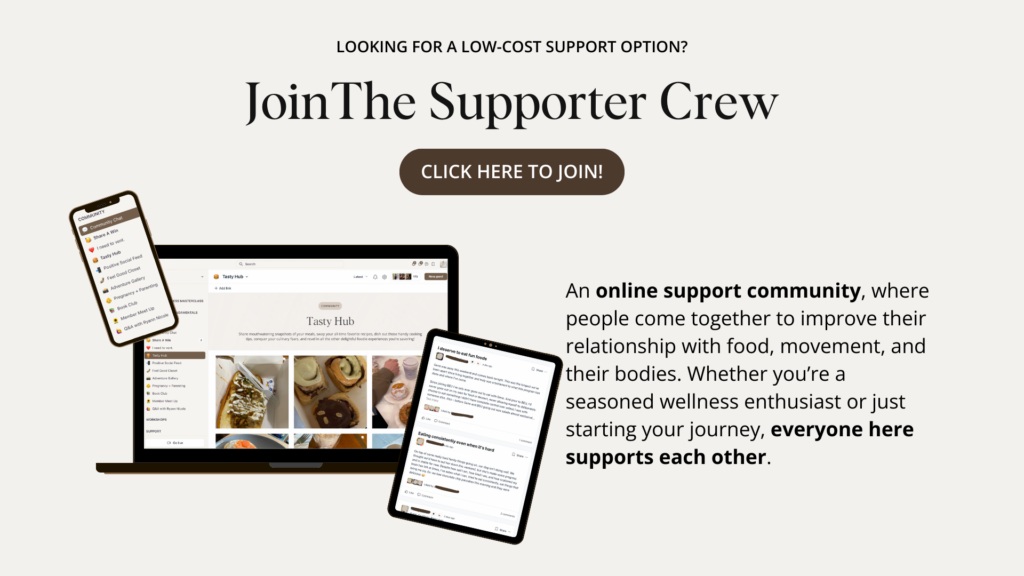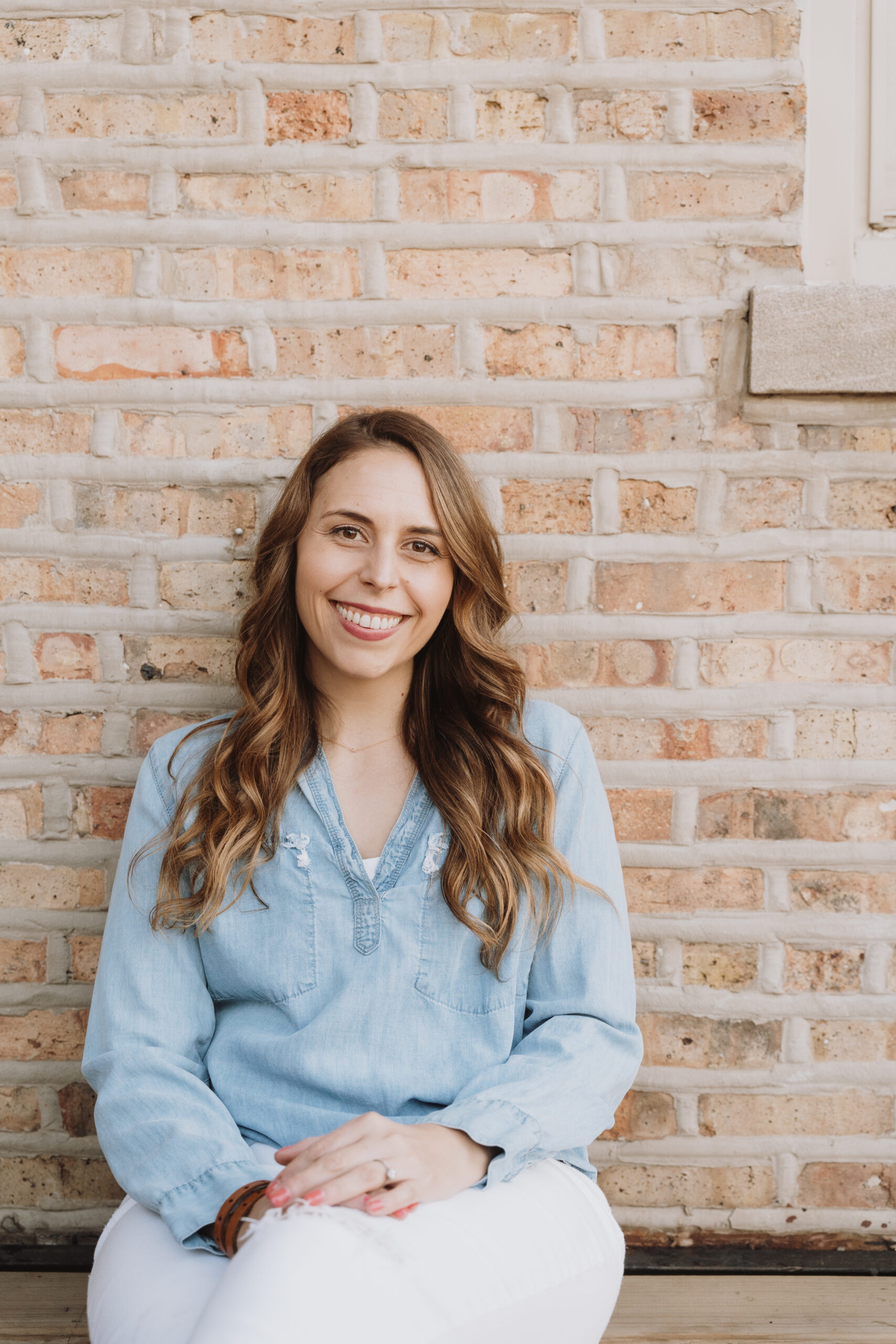How to Manage Body Changes in Binge Eating Recovery

Written By:
Category:
Ryann Nicole
Starting the journey towards overcoming binge eating takes bravery and strength. It’s a road filled with learning about yourself, bouncing back from challenges, and finding healing. Along this journey, many people encounter changes in their bodies, which can feel really tough. In this blog post, we’ll talk about why it’s important to let go of shame about weight gain during binge eating recovery and how to embrace a positive outlook on the changes your body might experience. Let’s dive in and discover how to navigate these changes with courage and acceptance.
Understanding the Role of Weight in Recovery
When you embark on your journey to heal from binge eating, it’s natural to wonder how your body might change. Whether you see your weight go up, down, or stay the same, it can be scary. But here’s the thing: whatever happens to your weight during this process is okay. As you work on your relationship with food, your body might adjust, and that’s a good thing. It’s a sign that you’re moving towards better overall health. However, this is much easier said than done. Why?
Society’s Unrealistic Beauty Standards
Society often pushes unrealistic ideas about beauty and puts extreme focus on being thin. It’s important to question these standards and realize that true well-being and health isn’t just about how much you weigh. Real health includes how you feel physically, mentally, and emotionally.
Navigating Emotional Discomfort with Body Changes
Dealing with how your body changes can be hard when you’re recovering from binge eating. As you get better, your body might change in ways that make you feel all sorts of emotions. You might feel unsure or worried if you gain or lose weight, or if you see yourself differently. It’s important to understand these feelings and talk about them with someone you trust. By doing this, you can learn to accept your body and feel stronger as you keep getting better. Other things you can do to help with this emotional discomfort:
Shifting Focus to Non-Physical Achievements
Celebrate the non-physical achievements in your recovery journey. Shift the focus from external appearances to the internal transformations you’re experiencing. For example, celebrate:
🎉 Breaking a food fear
🎉 Time without weighing yourself
🎉 Using a beneficial coping skill instead of food
🎉 Acts of self-love and self-care
🎉 Challenging a destructive thought
🎉 Reaching out for support or guidance
🎉 Completing lessons or modules
🎉 Choosing to participate in group activities
🎉 Overcoming food-related fears to make memories (shopping, dining out, etc.)
Rejecting Diet Culture Narratives
Diet culture promotes the idea that thinness equates to success and happiness. Reject these harmful narratives and embrace the concept that health is multifaceted and unique to each individual. A healthy body comes in various shapes and sizes. Here are 10 mantras to help you with this:
- “I nourish my body with love, not restriction.”
- “My worth is not determined by the size of my body.”
- “I listen to my body’s hunger and fullness cues with compassion.”
- “Health comes in all shapes and sizes.”
- “I reject the idea that thinness equals happiness.”
- “I celebrate my body for all that it can do, regardless of its appearance.”
- “I trust my body’s wisdom to guide me in making nourishing choices.”
- “I embrace food as fuel for my body, not a source of guilt or shame.”
- “I honor my body’s natural shape and size, free from comparison.”
- “I choose self-care over self-criticism, honoring my body’s needs with kindness.”
Recognizing Your Body’s Needs
Weight gain can be a signal that your body is healing and receiving the nourishment it needs. Listen to your body’s cues, honor its hunger and fullness, and appreciate the resilience it demonstrates throughout the recovery process.
Seeking Support and Validation
Surround yourself with a supportive community, whether it’s friends, family, or individuals who have experienced similar journeys. Sharing your experiences and receiving validation can help combat feelings of shame and foster a sense of belonging.

Focusing on Health, Not Weight
Shift your focus from weight as a measure of success to overall health and well-being. Engage in activities that promote mental and physical wellness, such as regular exercise, adequate sleep, and stress management.
Cultivating Self-Compassion
Treat yourself with the same kindness and understanding you would offer a friend. Acknowledge that recovery is a complex and nonlinear process, and setbacks or changes in weight don’t diminish the progress you’ve made.
Setting Boundaries with Negative Influences
Identify and set boundaries with individuals or environments that perpetuate weight stigma or contribute to negative self-perception. Surround yourself with positivity and sources that uplift your self-esteem.
Celebrating Your Unique Journey
Your recovery journey is uniquely yours, and the changes in your body are a testament to your strength and resilience. Celebrate your progress, both internal and external, and embrace the growth you’ve achieved.
Recovering from binge eating involves more than just changing eating habits; it’s about transforming your relationship with food, your body, and yourself. Let go of the shame associated with weight gain, recognizing it as a positive and often necessary aspect of your recovery journey. Embrace the newfound freedom that comes with breaking free from societal expectations and celebrate the incredible strength it takes to prioritize your well-being over societal norms.
Must Read Books To Improve Body Image
Just so you know, I do review everything I recommend. When you buy through links on this page, we may earn a commission.
The Body Is Not An Apology By Sonya Renee Taylor
The Body Is Not an Apology offers radical self-love as the balm to heal the wounds inflicted by these violent systems. World-renowned activist and poet Sonya Renee Taylor invites us to reconnect with the radical origins of our minds and bodies and celebrate our collective, enduring strength. As we awaken to our own indoctrinated body shame, we feel inspired to awaken others and to interrupt the systems that perpetuate body shame and oppression against all bodies. When we act from this truth on a global scale, we usher in the transformative opportunity of radical self-love, which is the opportunity for a more just, equitable, and compassionate world–for us all.
What We Don’t Talk About When We Talk About Fat by Aubrey Gordon
Advancing fat justice and changing prejudicial structures and attitudes will require work from all people. What We Don’t Talk About When We Talk About Fat is a crucial tool to create a tectonic shift in the way we see, talk about, and treat our bodies, fat and thin alike.
Body Talk by Katie Sturino
With Body Talk, an illustrated guide-meets-workbook, Sturino is here to help you stop obsessing about your body issues, focus on self-love, and free up space in your brain for creative and productive energy. Complete with empowering affirmations, relatable anecdotes, and actionable takeaways, as well as space to answer prompts and jot down feelings and inspirations, Body Talk encourages you to spend less time thinking about how you look and what you eat and more time discovering your inner fierceness.
More Than A Body by Lindsay and Lexie Kite
From media consumption to health and fitness to self-reflection and self-compassion, Lindsay and Lexie share powerful and practical advice that goes beyond “body positivity” to help readers develop body image resilience—all while cutting through the empty promises sold by media, advertisers, and the beauty and weight-loss industries. In the process, they show how facing your feelings of body shame or embarrassment can become a catalyst for personal growth.
The Body Of Truth by Harriet Brown
The quest for health and wellness has never been more urgent, yet most of us continue to buy into fad diets and unattainable body ideals, unaware of the damage we’re doing to ourselves. Through interviews, research, and her own experience, Brown not only gives us the real story on weight, health, and beauty, but also offers concrete suggestions for how each of us can sort through the lies and misconceptions and make peace with and for ourselves.
Landwhale by Jes Baker
A deeply personal take, Landwhale is a glimpse at life as a fat woman today, but it’s also a reflection of the unforgiving ways our culture still treats fatness, all with Jes’s biting voice as the guide.
Ryann Nicole
Licensed Therapist, Certified Nutritionist, and Virtual Wellness Coach
Ryann is a licensed therapist and virtual wellness coach who has assisted individuals worldwide in establishing a healthier relationship with food and their bodies.
Are You Ready to Heal Your Relationship With Food?
I understand—it can be overwhelming to figure out where to begin. Let's simplify things and have you start right here:
Why Am I Overeating?
First Steps To Stop Binge Eating
The Food Freedom Lab Podcast
FREE QUIZ
FREE GUIDE
Podcast
the food freedom lab podcast


